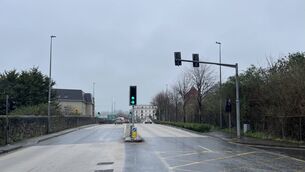Cork Business Association says over the shop scheme should be a priority

A recent report from Hardware Association Ireland (HAI) estimated 1,830 over-the-shop units in Cork could be brought into use as housing.
Above-the-shop living should be a priority, but rollout has been too slow, a Cork Business Association (CBA) representative has said.
It comes following a recent report from Hardware Association Ireland (HAI) that estimates 1,830 over-the-shop units in Cork could be brought into use as housing.
Clara O’Neill, chairwoman of the Cork Business Association (CBA) Cork City 2030 working group and director of Total Planning Solutions, said Cork city has long been a hub of commerce and culture.
Challenge
“Yet, like many historic cities, it faces the challenge of maintaining vibrant, lived-in streets while adapting to modern housing needs,” she said.
“One solution with immense potential is the living over the shop [LOTS] scheme, an initiative that could breathe new life into the city centre while addressing housing shortages.
“These spaces, many dating back to the 18th and 19th centuries, were originally designed as combined living and working quarters — a model that could be revived to meet today’s needs.
“With Cork facing a severe housing crisis, unlocking these spaces could provide hundreds of new homes without the need for sprawling developments.
“Increasing upper-floor occupancy leads to vibrant streetscapes; a permanent residential population ensures footfall for local businesses, deters antisocial behaviour, and maintains the city’s vibrant character beyond trading hours.”
Other benefits are that reusing existing structures “is inherently greener and more sustainable than new builds”, and would reduce construction waste, preserve Cork’s historic fabric, and contribute to the sustainable urban living agenda.
Slow
However, she added: “Despite its potential, the uptake of LOTS conversions has been slow, largely due to financial, planning, and fire regulation complexities.
“Many property owners face high renovation costs, long/onerous planning regulations, and a lack of incentives to justify the investment.
“This is where targeted, area-based tax incentives could make a transformative difference, by offering reductions in Vat, rates relief, or capital allowances for qualifying conversions.”
Ms O’Neill said the CBA “would like to see Cork City Council, in partnership with central Government, taking decisive steps to promote LOTS”.
This could include pilot schemes in key areas such as the city’s central island, streamlining planning permissions for residential conversions where structural feasibility and fire-regulation compliance is proven, and engaging with stakeholders and local property owners to identify barriers and tailor incentives accordingly.
“The vision is clear: a Cork city where streets are alive day and night, where historic buildings are fully utilised, and where city-centre living is an attractive, affordable option.
“By embracing living over the shop, Cork can set a benchmark for urban renewal; one that other Irish cities may soon follow.”
Solutions
Green Party councillor Oliver Moran also welcomed the HAI report. “Having a suite of off-the-shelf solutions for common issues like access to grants, planning, and fire certification would ease some of the barriers,” he said.
“A third of respondents identified clear guidelines in relation to planning permission as being an important factor. That’s something that Cork City Council can lead on.
“I’d also like to explore what can be done for finance under the banner of the EU Mission Cities designation to allow easier access to finance. The greenest building is the one that’s already built.”







 App?
App?


